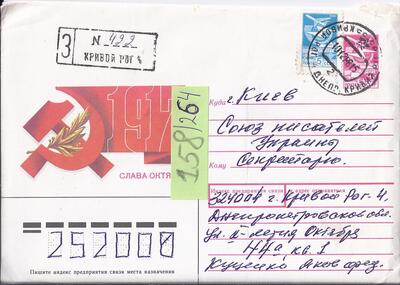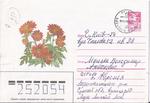Letter sent from: Kryvyi Rih, Dnipropetrovsk oblast
Letter describes events in 1932-1933 in: Village of Baidivka, Starobilsk raion; and Lysychansk, Donetsk oblast
Current location name: Village of Baidivka, Starobilsk raion, Luhansk oblast; and Lysychansk, Luhansk oblast
Events take place in Luhansk oblast (Voroshylovhrad at the time); first in the village of Baidivka, where he lived with his family, and then in Lysychansk, where he moved with his big brother's family. Kutsenko wrote in response to an announcement on the radio requesting testimonies of Famine survivors.
He was 10 at the time of the Famine. His father was a peasant, his mother had worked as household help for the family of a doctor in Artemivsk (now Bakhmut). In 1932 his father paid his taxes twice and could not make it the third time. As a result, the family of 6 was dispossessed, their house and household sold. They then lived in a house of a family that had died of starvation. His father, older sister and younger brother all died of hunger. His other older sister took in his mother, and his older brother Sava, who worked in a mine, took him in.
He mentions that he saw groups of people taken from the village to a place he calls Soldatske (former garrison), where those to be deported were detained and left for dead.
People ate mock foods including pets and "other people." He observed sacks of flour and barrels of salted fish dumped and set on fire near the railway station in Lysychansk.
Calls the famine "artificial" and considered activists to be lazy poor people. He writes that under Stalin and the "stagnation" period it was impossible to speak about the famine but it is important that people know about it now.
Ukrainian transcription is available.



